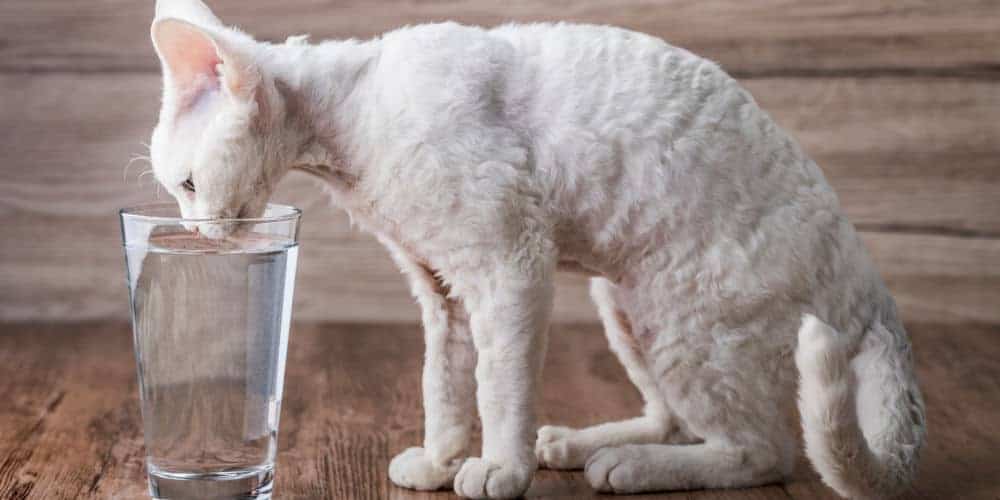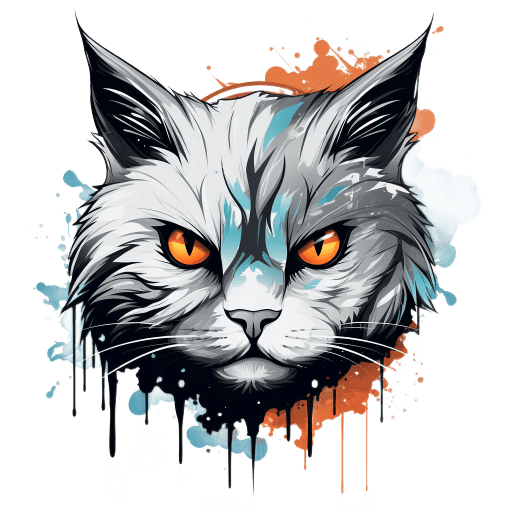Why Is My Cat Losing Weight and Drinking Lots of Water?

Cats are creatures of habit that rarely stray away from their daily routines, but as cats grow older, you may start to notice slight changes in the way they sleep, eat, and drink. However, if you’re wondering “why is my cat losing weight and drinking lots of water?”, this could be a red flag.
Weight loss may occur naturally, especially as your cat ages or changes her diet. Excessive thirst could be due to her food not providing enough hydration, or being in a hotter-than-usual environment.
However, if your cat is showing both symptoms at once, this could indicate that your cat is ill. Conditions like kidney disorders, diabetes, and hyperthyroidism could be the reason behind weight loss and excessive drinking.
I’ll be covering what causes each symptom separately, and what causes both simultaneously.
Let’s dive in!
Cat Attitudes is reader-supported. When you buy through links on our site, we may earn an affiliate commission.
Possible Causes of Weight Loss
Cats are always finicky when it comes to food. However, if your cat is being extra picky or simply refuses to eat what she’d normally wipe off the bowl, you should start investigating the cause.
Depression or Anxiety
Cats give off a nonchalant attitude, but that doesn’t mean they’re not affected by their surroundings or a sudden change in their routines. If you recently moved house, introduced a new pet, or drastically changed your daily routine (and your cat’s), she may be disturbed by what’s going on.
Your cat may also be bothered if her food bowl is close to any other cat’s, if it’s unclear or if it’s too close to the litter box.
Vaccines
Has your cat been to the vet recently? If your cat took her shots, they may be the culprit as to why she’s not eating as much. Some vaccines cause a loss of appetite as a side effect, but no worries, this side effect is usually mild and fades away eventually.
To avoid any future scares, ask your vet for any common side effects a vaccine may have on your furry friend.
Diet Changes
Like I mentioned before, cats don’t like change, especially not in their food bowls. If your cat is used to home-made meals, and you started introducing canned food all of a sudden, she’ll most likely avoid eating altogether.
The opposite also applies, so, if you’re switching out your cat’s food menu, make sure to do so gradually by incorporating some of the new food with the old, till she gets used to the taste.
Forcing your cat to eat something is always a bad idea. She’ll either win this fight, or she’ll stop eating. If she stops eating, this will put her at risk of kidney failure.
Causes and Signs of Excessive Drinking
This symptom is slightly tougher to spot than the weight loss, especially during the hot summer months when we, and our furry pals, chug down water to keep cool.
Some types of cat food, especially dry food, don’t provide your cat with enough hydration. Dry food can cause dehydration if it contains high amounts of sodium.
Both reasons will have your cat running to the water bowl more often. But when can you call those visits excessive?
Abnormal Behavior
This could count as your cat sipping on faucet drips, or slurping out of the toilet. Unless she’s used to doing that on her own, then this is definitely something to look out for.
Frequent “Accidents”
All this extra water your cat is slurping has to make its way out eventually. However, it’s not normal if your cat doesn’t make it to the litterbox on time frequently or has an accident on the couch. Excessive drinking and urination can be a sign of infections or something more serious.
Medical Causes of Weight Loss and Excessive Drinking
We’ve gone through the possibilities of why your cat is losing weight and drinking more water separately, but when these two come together, they’re not a good sign.
Kidney Disorders
Kidney failure or chronic kidney disease (CKD) is when a cat’s kidneys start working less efficiently, usually as they grow older. Making your cat urinate more, as well as suffer from symptoms such as:
- Loss of appetite
- Nausea
- High blood pressure
- Lethargy
Kidney disorders can also be a symptom of other underlying diseases such as kidney infections, kidney stones, cancer, or FIP (feline infectious peritonitis). Your vet will need to run a number of tests to properly evaluate the cause.
Although there’s no cure for CKD, your vet may recommend a change in diet to a more kidney-friendly food, as well as medication to slow down the weight loss and curb nausea.
Diabetes Mellitus
Also known as sugar diabetes, diabetes mellitus is when your cat’s pancreas doesn’t produce enough insulin to sustain the correct level of blood sugar. Diabetes is quite common in overweight and elderly cats, and just like humans, some cats are more likely to have diabetes due to their genetics.
A simple urine test at the vet will determine if your cat is diabetic.
Hyperthyroidism
Thyroid glands (located in the neck) control a cat’s metabolism by producing the thyroid hormone. Hyperthyroidism is when those glands become enlarged and start over producing thyroid hormones.
The excess hormones can cause your cat to shed weight despite an increased appetite, and drink water more frequently. It could also show other symptoms such as vomiting, diarrhea, and hyperactivity.
Unfortunately, there’s no known cause for why hyperthyroidism happens to cats, but it‘s most common in middle-aged to older cats.
Despite how serious it sounds, there are various treatment plans that your vet can recommend to keep your cat healthy, after running some tests.
4 Tips to Keep Your Cat Healthy
Although some diseases have no cure, there are a few precautions you can take to slow down their progression or prevent it altogether.
Better In Than Out
Keeping your cat indoors can stop her from catching any unwanted parasites and help you monitor her for any unusual symptoms.
Litter Box Care
This is a no-brainer but cleaning your cat’s litter box regularly can help you detect any extra clumps or unusual odor that raise flags.
Regular Checkups
Your furry friend won’t be excited about this trip, but regular visits to the vet are essential in keeping tabs on how your cat is doing, as well as take any vaccines the vet recommends.
Balanced Diet and Hydration
This goes without saying, but a balanced diet that provides your cat with the nutrients she needs based on her age is crucial in keeping your cat in tip-top shape.
Another no-brainer is that cats shouldn’t eat human food, except for a few exceptions. Cats should never be given human medication, nor left near an open medicine cabinet.
Most human drugs are extremely toxic to cats and can cause poisoning that may lead to irreversible damage to your cat.
Hydration can be provided through hydrating food options and regular water bowls. If you’re feeling fancy, you can get your cat a water fountain to encourage her to drink more water.
Water fountains simulate running water streams that cats find in the wild, and it makes sure the water isn’t still for long so it doesn’t grow bacteria.
Final Thoughts
Losing weight and drinking water more than usual can either be your cat’s usual, or they can indicate something far more serious. Regular visits to the vet as well as keeping a record of your cat’s routine will help keep her safe and sound.
